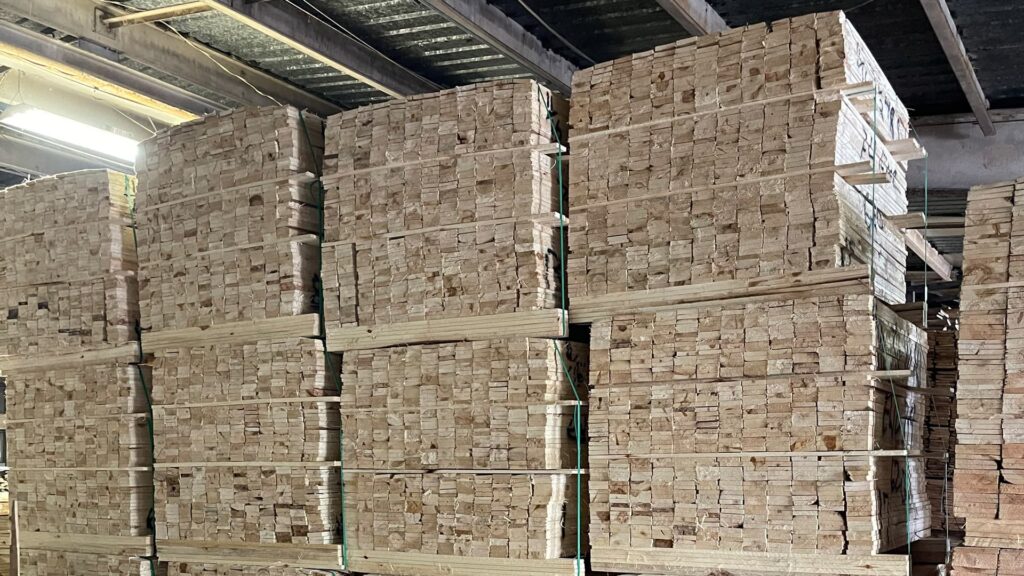In rapid world, the effective keeping and protection of goods have become crucial for businesses across various sectors. As companies strive to improve their processes, one essential tool that often stands out is the humble pallet. Rather than being just a platform for products, pallets play a significant role in guaranteeing that items are kept safely and effectively. Their design allows for easy handling and moving, changing the way we think about storage solutions.
In addition, the importance of pallets extends beyond just practical uses. They play a major role in ensuring safety in warehouses and distribution centers. By providing Tulsa , pallets help reduce risks associated with damage to goods and workplace accidents. The thoughtful use of pallets can enhance order and accessibility, allowing for more effective inventory management while making the most of available space. As we explore the case for pallets, it becomes clear that they are indispensable in the dual roles of preserving the integrity of products and fostering a safe working environment.

Advantages of Using Pallets
Shipping pallets offer a reliable solution for the holding and distribution of goods, greatly enhancing efficiency in storage facilities. By elevating products off the ground, pallets enable better air movement, reducing the risk of moisture damage and mildew formation. This is especially important for organizations that store fresh goods or goods vulnerable to environmental conditions. The standardization of pallet sizes also makes it more convenient to stack and organize products, enhancing the utilization of vertical space in storage areas.
Furthermore, using pallets can optimize the shipment and unloading processes, saving valuable time and workforce expenses in logistics operations. Pallet lifters and pallet jacks can readily move pallets in mass, reducing the need for manual handling of individual items. This not only accelerates the operation but also reduces the risk of injury to workers, thereby enhancing overall security in the workplace. The productivity gained through pallet use can lead to improved throughput and better inventory oversight.
Affordability is yet another important advantage of pallets. They can be repurposed multiple times, making them a eco-friendly choice for businesses looking to reduce material expenses. Additionally, the accessibility of pooled pallet services enables companies to access pallets without the need for significant upfront expenditures. By adopting pallets, businesses can cut down on waste, lower transportation expenses, and ultimately add to a more effective supply chain.
Types of Pallets
Pallet types come in various materials, each tailored to specific storage and transportation needs. Wood pallets are the most common type, known for their robustness and ease of repair. They can hold substantial weight and are prevalent in industries such as food service, medicines, and commerce. However, wooden pallets require suitable treatment to prevent insect problems and moisture damage, making maintenance an important factor.
Plastic pallets are gaining popularity due to their resistance moisture, chemicals, and temperature fluctuations. These pallets are often light, reducing shipping costs and making them more manageable. They are ideal for industries that require high hygiene standards, such as the pharmaceutical sector and the food industry. Additionally, plastic pallets are reuse-friendly, aligning with eco-friendly practices for businesses aiming to reduce their carbon footprint.
Metal pallets, typically made from steel or aluminum, offer exceptional strength and longevity. They are suitable for rugged applications and are often utilized in factories where durability is paramount. Metal pallets can withstand extreme conditions, including high temperatures and large weights, making them ideal for storing goods in demanding environments. Their sturdy design, however, often comes with a higher cost compared to wood and plastic choices.
Safety Guidelines in Platform Usage
Ensuring safety while the moving and holding of goods on pallets is vital for preventing accidents and ensuring an effective process. Personnel should routinely be trained in proper hoisting techniques to prevent injuries when transporting heavy or oddly shaped loads. Employing pallet jacks or forklifts can significantly lessen the physical stress on staff and reduce the risk of accidents. Regular upkeep and evaluations of these tools are essential to ensure they function in a safe manner and properly.
Another important factor of pallet safety involves examining the pallets themselves. Durable and well-maintained pallets are important to preventing loads from caving in or shifting during holding and transport. Broken pallets should be removed from circulation immediately to prevent any potential dangers. It's also recommended to keep pallets dry and free from toxic substances, as moisture can degrade the material and lead to accidents.
Lastly, compliance to proper placing methods is essential in upholding safety when employing pallets. Loads should be placed evenly and within the weight limits of the pallets to stop tipping or falling. Tags on pallets can function as reminders for weight limits and proper handling instructions, encouraging a safer work environment. By applying these safety guidelines, companies can confirm that their pallet usage not merely maximizes space but also focuses on the safety of their staff.
